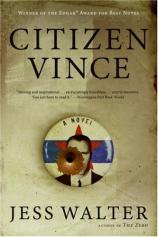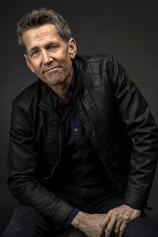Reading Group Guide
Discussion Questions
Citizen Vince

1. The epigraph of Citizen Vince comes from the Tao Te Ching: "A great nation is like a great man ... he thinks of his enemy as the shadow that he himself casts." How does Ray Sticks serve Vince's shadow? Who is the shadow that Dupree must confront? And Beth? Jimmy Carter?
2. Vince Camden's interior monologue is often in the second person ("One day you know more dead people than live ones.") What does this say about him? When do we generally think of ourselves as you, in the second person? How is Vince's interior monologue sparked by the presidential debate?
3. As he's listening to the debate between Jimmy Carter and Ronald Reagan, Vince thinks that we sometimes miss the larger tides of history because we're so focused on waves of news and gossip. How are the issues that the candidates debate similar to the issues our country faces now? How are the issues and the rhetoric different?
4. Does Vince's infatuation with Kelly represent more than just an attraction to a beautiful girl? How does it differ from his relationship with Beth? What is it the two women want? Does the woman that Vince winds up with in the end of the book tell us anything about the true nature of the changes he has made?
5. A handful of fictionalized versions of historical figures appear in Citizen Vince, from John Gotti to Jimmy Carter. How do these "real people" affect your enjoyment of the novel? Do they lend it some credence or do they distract from the story? Why do you think the author chose to include these characters?
6. The sense of place is as important to Citizen Vince as any of the characters. How do Spokane and New York differ in Vince's eyes? How do they differ in Ray's eyes? By the end of the book, why does Vince think of Spokane as his home?
7. The novel doesn't make it clear which candidate Vince voted for. Who do you think he voted for? Does it matter in the framework of the novel?
8. Vince only reads the beginning of novels, because he is so often let down by the endings. Novels, he thinks, can only end one of two ways, artfully (forced and manipulated) or truthfully (ambiguously or more often, badly). How do you think he would like the ending of Citizen Vince?








